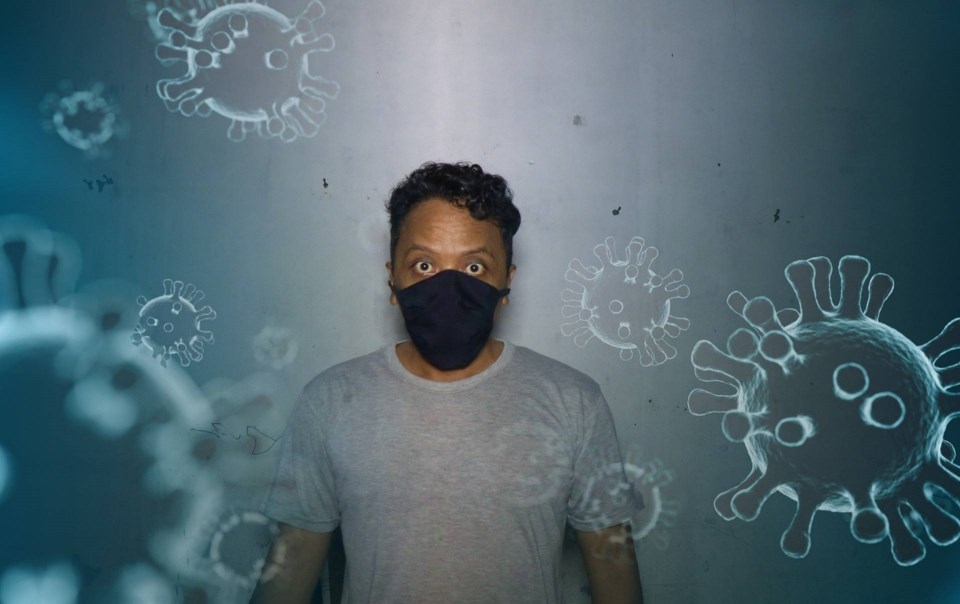Two weeks ago as Esther Roberts* watched Governor Cuomo and President Trump's daily briefings on COVID-19, her heart started racing and her chest tightened.
"I was freaking out, my heart was really accelerated and I started to feel nauseated," she said. "I couldn't tell if it was COVID."
Roberts, who lives in Clinton Hill and works in tech, called friends that work in healthcare who urged her to call a hotline and explain her symptoms.
"The hotline staff told me it was likely anxiety or a panic attack and they'd been receiving a lot of similar calls."
With the uncertainty and stress brought on by the COVID-19 pandemic, psychiatrist Rubina Waheed said a number of people who had never suffered panic attacks were calling 911 and ending up in the emergency room confused about their symptoms and not knowing what to do.

She said normally with anxiety, people start hyperventilating suddenly, taking very short shallow breaths which depleted carbon dioxide levels and made them feel dizzy, light headed, sweaty, and confused, and could cause chest pains, heart palpitations and shortness of breath. Attacks normally wind down within half an hour to an hour, she said.
"The best thing to do if you get a panic attack or you are hyperventilating is to hold your breath for ten seconds. Consciously try to calm yourself down, start breathing deeply, put your hands on your belly and take deep breaths from your belly not the chest," she said. "When the respiration slows down then the carbon dioxide should go back to normal and symptoms should wear off in a few minutes."
She said it was important for people to question why they were suffering from increased anxiety, and for most patients the answer was fear.
"The fear is because they have lost control of their lives," she said.
She said the best to regain control was by doing the little things that helped people and their families day-to-day, such as staying on top of medications, going to telehealth appointments, and not taking over the counter or recreational drugs, which she said could cause anxiety. She added that people who need financial or legal assistance should call 311, and those who needed support and someone to talk to should call the mental health hotline.

Cardiology attending at Woodhull Hospital Dr Braulio Cosme-Thormann said the main way to distinguish between panic induced breathing issues and COVID-19 related issues was their duration, and if there were any other symptoms.
"Most COVID-19 patients suffer shortness of breath that is more pronounced, they say they feel some heaviness in your chest, they are gasping for air like there's not enough oxygen," he said. As opposed to panic related breathing issues, which normally lasted no longer than one hour, he said.
COVID-19 symptoms also normally include a dry cough and some discomfort in the throat, and can be accompanied by a loss in taste and smell, and a mild to high fever, he said.
Dr.Louis Gerolemou, Chief of Pulmonary Medicine at The Brooklyn Hospital Center said patients who develop shortness of breath from the coronavirus do so because they develop pneumonia and they generally have had pre-existing symptoms for several days before they develop of pneumonia.
"In these stressful times many patients may develop an acute sense of breathing difficulty due to stress. If there are no pre-existing viral symptoms, coronavirus infection would be unlikely," he said.
Roberts said after discovering it was anxiety causing her issues, she began a regimen of daily steam inhalations, meditating twice a day, and avoiding the daily news briefings, social media and coffee.
She said she had also started calling the mental health hotline because she realized "I just need to talk it through."
If you feel like you need to talk you can call the hotline here. You can also read the City's explainer on panic attacks versus Covid-19 symptoms.
*Name has been changed to save her identity




